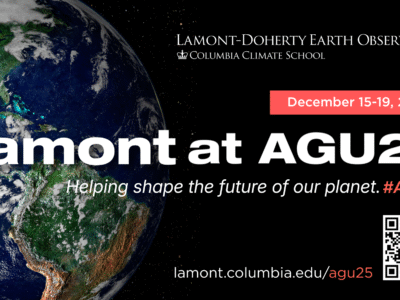Dr. Jennifer Kay, a post doc at the National Center for Atmospheric Research (NCAR), was at Lamont recently to give a talk entitled “Mechanisms for Recent Sea Loss.” Kay’s talk offered a detailed explanation of recent sea loss in the Arctic, including the all-time low experienced in 2007. Kay also outlined mechanisms that may have led to the relative rebound of ice cover witnessed this past melt season and offered several assessments on the implications of her research.
Kay’s work relies heavily on observations from a relatively new satellite constellation known as the “A-Train.” A group of five satellites launched over the last seven years, the A-Train takes near-simultaneous pictures of the Earth’s atmosphere. Using A-Train observations, Kay and colleagues have been able to analyze information that was not previously available, including data regarding air temperature, humidity, and cloud structure.
This information has allowed Kay to reconstruct atmospheric conditions experienced during the 2007 melt season. In Kay’s view, these conditions – including anomalous circulation patterns and a reduction in cloudiness – created a “perfect storm” of wind stress and increased short-wave radiation which led to the dramatic melt. The fact that these conditions were not reproduced in 2008, Kay believes, explains the relative increase in ice cover experienced last fall.
Which doesn’t mean we’re not still feeling the effects of 2007’s anomalous conditions, Kay is quick to point out. Indeed, while ice cover did rebound last year, 2008 still marked the second-lowest Arctic sea ice extent on record. In Kay’s view, this was the result of initial conditions – including ice thickness – partially created by the dramatic ice melt of 2007. Thus, Kay concludes, a warmer Arctic, marked by thinner ice, will be increasingly sensitive to year-to-year variations in circulation and cloud cover.
This is not good news, but it was certainly interesting to see the way that Kay made use of the data recently made available by the A-Train to come to her conclusions. It will be interesting to see what other new findings develop as a result of the satellites.




I took out a few irrelevant details from this post. All the info on Dr. Jen Kay’s talk is still here.